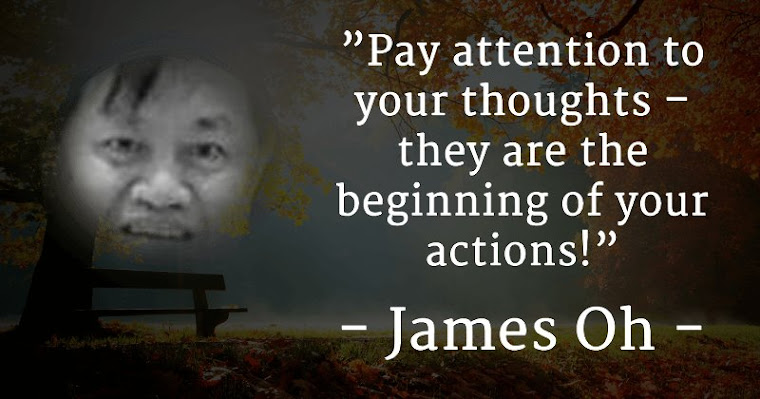JAMES OH
AUTHOR
BETTER THAN THE BEST
http://www.smashwords.com/books/view/302553
How to Stop Complaining to be Happier
I've always been a complainer. It wasn't so much that I was unhappy and that's why I was complaining -- it was just a habit that started to perpetuate itself, making it hard to break and eventually becoming a part of who I am. Soon, the mindless complaining started to create unhappiness, reinforcing negativity in myself and for those around me.
I knew that I needed a change, so I decided to do a bit of a detox. When I went online to get some tips, I found that many others were doing the same, and that cutting out complaining and other forms of negative self-talk had actually been shown to improve mood and to increase your overall happiness level, improving other aspects of your health, as well.
Here are a few tips that helped me learn to stop complaining and that may help you, as well:
Make a Pledge and Tell Everyone about It
When you announce your intentions to others, not only does it make it more official, but you also have people who can then support you in meeting your goals and hold you accountable. When I told my friends and family about my decision to stop complaining, a few people were confused about why I wanted to do it, but most were very supportive and excited to see how I would progress on the journey.
Let others know what you are doing and why you are doing it. If you have a goal for how many days you want to make it complaint-free, tell them that. Also let them know what kind of language you consider to be a "complaint" and what you need from them in order to support you.
Use a Visual Reminder
A reverend who challenged his church to stop complaining launched a movement (http://www.acomplaintfreeworld.org/) that now strives to reach people all around the world to promote this message of positivity. One of the strategies that this movement employs is the use of a purple bracelet as a visual reminder of the pledge to stop complaining. When you slip up and complain, you move the band to the other arm and you start counting down your complaint-free days again.
When I started on my complaint-free mission, I used one of the bracelets. However, it was hard for me to remember how many days it had been since I switched it, making it more difficult for me to monitor my progress. I found that keeping a journal helped me more. Though it wasn't a constant visual reminder, it did offer me a clear visual guide to my progress whenever I opened it up.
Focus on the Positive
To really stop your complaints, you have to find other things to focus on besides the negative. There will always be bad things happening either in your life, in your friends' lives or in the world. If you dwell on these things, you will become consumed , and that negativity will breed more negativity.
If you feel that you want to start complaining about something, focus on something positive instead. It can either be a positive aspect of the situation you want to complain about, or it can be something else positive that's happening in your life. When I first started doing this, it felt a little weird and unnatural. Bu after a few weeks, I started to naturally think about the positive things in my life, and all those negatives started to dwindle, making it all that much easier to stop complaining.
Get to the Root of Your Complaints
Mindless complaining isn't just about habit sometimes. It can often mask your unhappiness with deeper issues. Maybe you aren't happy in your job, or maybe your marriage is experiencing some troubles. Maybe you just don't feel content in your life. Whatever the reason, you have to deal with these issues if you are going to stop the complaints and start to focus more on the positive.
In my case, I was very unhappy with my job and found that I wasn't doing what I really wanted to do. A few months into my no-complaints challenge, I started shifting my focus to writing full-time, and I eventually was able to quit my job and transition to writing for pay. It was such a relief and I was so much happier that I found that I naturally wanted to complain less.
Complaints are insidious little comments that can start to dominate our speech and our thoughts before we realize what's happening. Over time, this constant focusing on the negative can cause you to feel unhappy and not to live up to your full potential. If you have done some honest soul-searching and realize that you need to stop complaining, these tips can help you to focus on the positive and get to a place that is happier and more fulfilling in your life. You'll be amazed at what changing this one habit can do for you!
About the Author:
Bridget Sandorford is a freelance food and culinary writer, where recently she’s been researching culinary schools in Atlanta. In her spare time, she enjoys biking, painting and working on her first cookbook.










